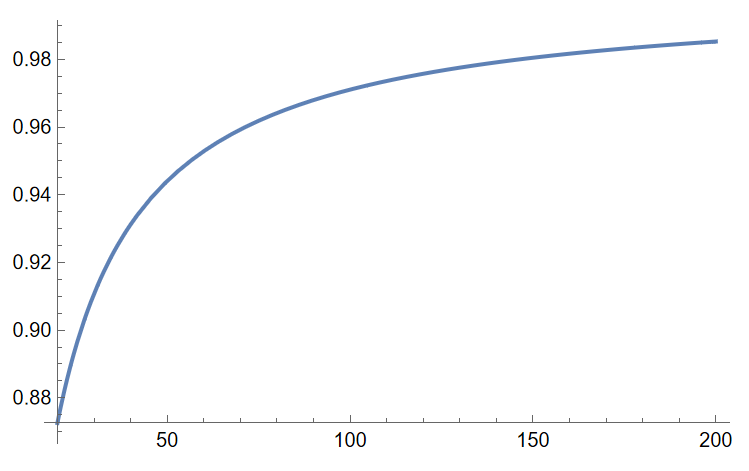Here the derivatives of the incomplete gamma functions are described via: $$ T(m,s,x) = G_{m-1,\,m}^{\,m,\,0} \!\left( \left. \begin{matrix} 0, 0, \dots, 0 \\ s-1, -1, \dots, -1 \end{matrix} \; \right| \, x \right) $$
I am interested in $T(4,1,x)$ for $x$ large in terms of how it scales with $x$. For example $xT(3,1,x) = E_1(x)$, is there a similar simplification for $T(4,1,x)$? There exists an expansion for $|x|<1$ and in Geddes et al paper it is mentioned that an analytic continuation of the series expansion is possible when proving that $T$ satisfied a differential equation. Yet even from the expansion, that does involve a Meijer-G function in turn, I can not tell how $T$ scales with $x$.
Reference
K. O. Geddes, M. L. Glasser, R. A. Moore, T. C. Scott, "Evaluation of classes of definite integrals involving elementary functions via differentiation of special functions", Applicable Algebra in Engineering, Communication and Computing, 1, No. 2, 149-165 (1990), DOI:10.1007/BF01810298, MR1325519, Zbl 0726.33015.

